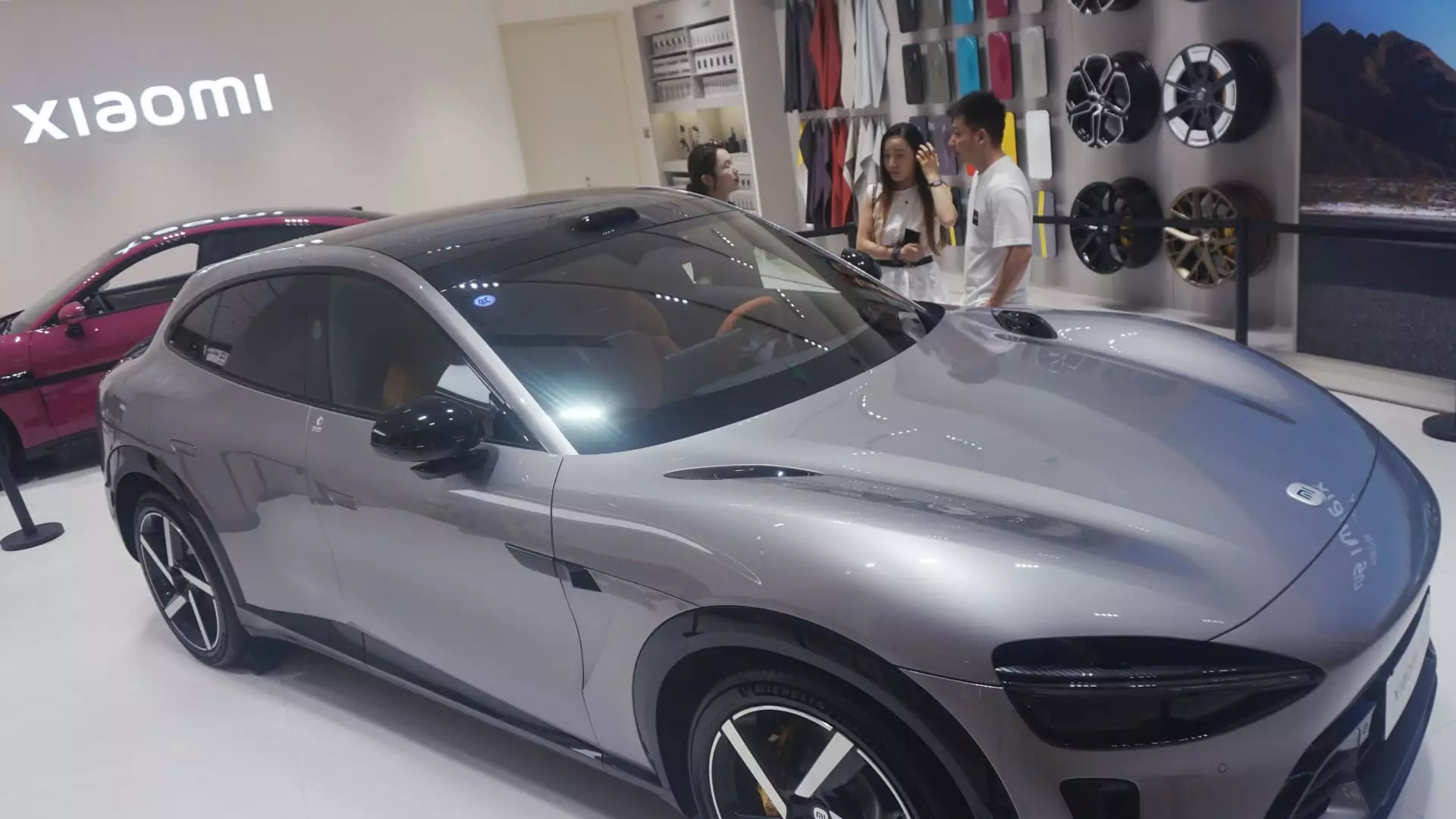In a striking move to shake up the electric vehicle market, Xiaomi has unveiled its luxury YU7 SUV, setting a competitive starting price at 253,500 yuan ($35,322). This strategic undercutting of Tesla’s Model Y, which begins at 263,500 yuan, is indicative of Xiaomi’s aggressive posture not merely as a consumer electronics powerhouse, but as a formidable contender in the burgeoning electric vehicle industry. The targeting of Tesla is not just a tactical decision; it’s a declaration of intent from a brand that has continuously capitalized on its technological prowess and consumer-centric solutions.
Xiaomi’s decision to enter the crowded electric SUV market with an enticing price point reflects both confidence and a calculated strategy to capitalize on market trends. Having deployed an extensive array of smart devices that resonate with tech-savvy consumers, the company leverages its existing ecosystem to entice buyers who are already familiar with its brand’s innovative ethos. The question remains, however: can Xiaomi truly deliver a product that competes on all fronts, or will it simply be another case of pricing tactics failing to mask a lack of substance?
Sales Ambitions and Forecasts
According to reports, Xiaomi has set ambitious forecasts for the YU7, anticipating monthly sales to hit approximately 30,000 units, which translates to an annual projection between 300,000 and 360,000 units. Such forecasts could easily lead one to speculate whether Xiaomi is overestimating demand based on a temporary surge in pre-sales enthusiasm. With early indicators showing more than 200,000 orders placed within mere minutes of the launch, one can’t overlook the potential for hype to inflate initial sales before the hard realities of market saturation and consumer satisfaction set in.
Xiaomi has also found a clever way to utilize its smartphone brand loyalty to increase the allure of the YU7. The SUV boasts mind-boggling driving range claims that reportedly exceed those of Tesla’s offerings, which is particularly pertinent given the prevalent anxiety surrounding battery life and recharging infrastructure. Promoting a driving range of at least 760 kilometers (472 miles), Xiaomi may find that it has struck the chord of consumer concerns, but whether it can maintain that edge in a highly competitive market remains contingent upon ongoing performance and reliability.
Innovation Meets Practicality
What distinguishes Xiaomi from competitors particularly is its integration of advanced technology, notably artificial intelligence. The YU7’s driver-assist software, powered by Nvidia’s Thor chip, heralds a commitment to not just functionality but to user experience and engagement. However, while Xiaomi boasts superiority in several metrics against Tesla, the criticism of falling short in driver-assist features raises critical questions about the depth of their technological integration. It appears that while Xiaomi excels in innovation, it must also ensure that it doesn’t sacrifice essential functionalities in the race for more features.
In addition to the YU7, Xiaomi’s launch of AI-connected glasses signifies a broader commitment to intertwining various product offerings into a cohesive ecosystem. This aligns with their philosophy of a smart lifestyle, but the lack of plans to market these products internationally might limit their potential outreach. Unlike Meta’s glasses, which have faced their own share of criticisms, Xiaomi’s plans seem more regionally focused, precisely reflecting existing consumer habits in the Chinese market.
A Market Evolution or Short-lived Surge?
The question remains whether Xiaomi’s foray into electric vehicles is an evolution of their brand or merely a transient headline grabber in a sector that is rapidly evolving. While there is no denying the appeal of a competitively priced, technology-rich electric vehicle, historical trends suggest that sustained success is contingent upon maintaining consumer trust and satisfaction. The electric vehicle market is akin to a high-stakes chess game, with companies balancing innovation, consumer expectations, and the unpredictable factors of supply chain disruptions and regulatory challenges.
Ultimately, Xiaomi’s YU7 SUV represents a bold statement in the evolving narrative of electric vehicles and consumer technology. Whether this vehicle will solidify Xiaomi’s leadership in this new realm or simply signal another momentary shift towards market chaos is yet to unfold. Despite the compelling statistics and initial enthusiasm surrounding the launch, the true test will occur in the following months as consumers navigate their choices in this crowded landscape. The promise of innovation combined with competitive pricing may be enticing, but can Xiaomi deliver on that promise in a way that resonates well beyond the launch spectacle?

